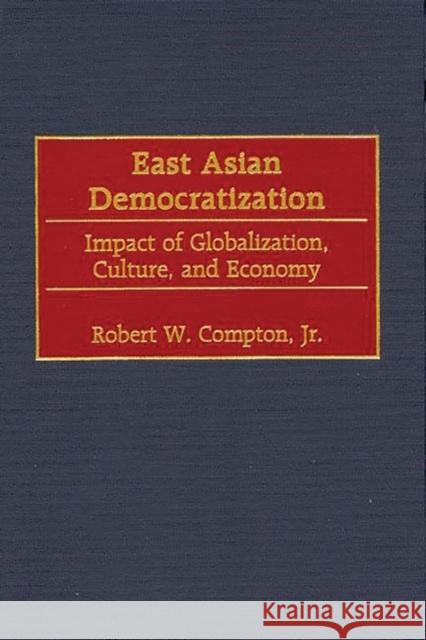East Asian Democratization: Impact of Globalization, Culture, and Economy » książka
East Asian Democratization: Impact of Globalization, Culture, and Economy
ISBN-13: 9780275964467 / Angielski / Twarda / 2000 / 224 str.
It may be tempting to view political development and democratization in East Asia from a global view and conclude that the contours of democracy will converge throughout the world. However, a close examination of the cultural and economic development of Asian societies suggests a contrary picture. The story of Asia is one of political and economic survival, in which political elites sought to legitimate their authority through the use of both traditional and modern symbols. Traditional communitarian values and the modern symbols of economic growth and materialism coexist in Asian political systems. The stability and legitimacy of Asian governments depend on the ability of political elites to balance these symbols. As globalization proceeds, the standard traditional and modern symbols have waned in their effectiveness. Therefore, democracy as a symbol and practice can provide new sources of legitimacy to these political systems.
Compton's Asian political development model is tested with quantitative indicators and through a series of case studies. The three case studies--Japan, South Korea, and Thailand--build on each other through a rigorous historical comparison. While the case studies themselves are interesting, he makes connections to the model and tests the congruence of these cases to the model, and concludes that the model's validity is predicated on the internal environment, including culture and economy. Of particular interest to scholars, students, and researchers involved with comparative and Asian politics, political development, and political culture.











